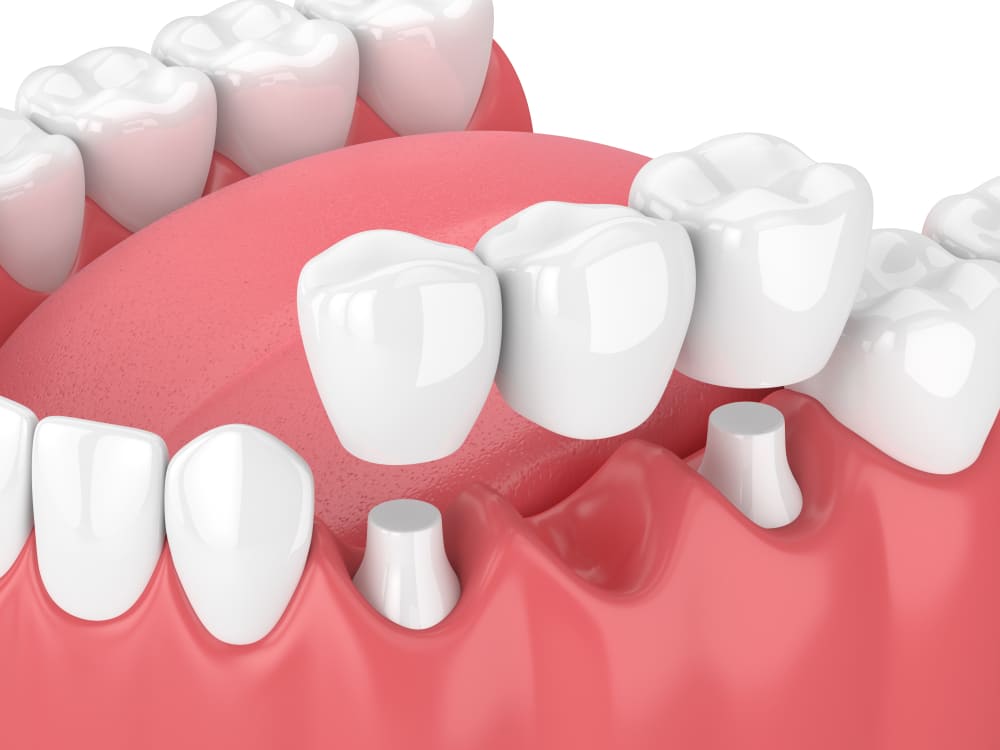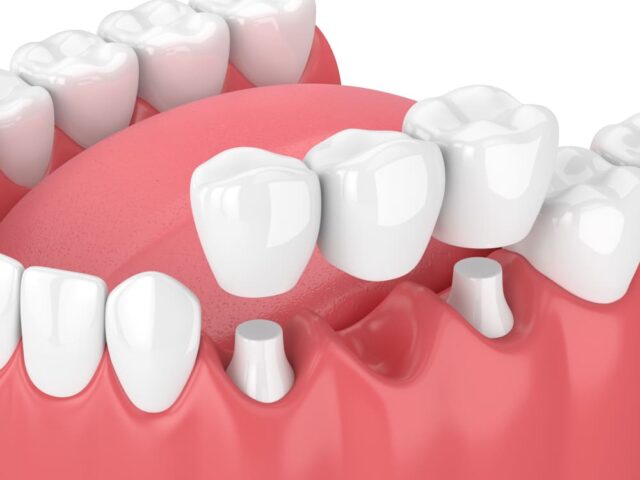Dental implants are an excellent choice if you’re considering restoring your smile. Dental implants are artificial tooth roots that are surgically implanted into the jaw. They can support various restorations to replace missing teeth, such as crowns, dental bridges and dentures.
The two most popular materials for dental implants are ceramic and titanium. Each has unique benefits and features that make it suitable for specific situations. In this blog post, we explore both materials, provide a detailed comparison and guide you through the factors to consider when choosing between ceramic vs. titanium implants.
Overview and Benefits of Ceramic Implants
When people talk about ceramic implants, they’re likely referring to implants made of zirconia. This is made from zirconium dioxide, a durable and resilient ceramic material.
Ceramic or zirconia implants were approved by the Federal Drug Administration (FDA) in 2007. Since then, they have gained popularity as an alternative to titanium implants. This is due to their many benefits, including the following:
- Biocompatibility: Ceramic implants are biocompatible, so they won’t damage your gums or trigger unwanted reactions like rejection and infection.
- Appearance: Ceramic can be easily colored to resemble the patient’s other teeth, which provides a more natural appearance than titanium.
- Less Hospitable to Bacteria: Ceramic’s smooth finish makes it difficult for bacteria to adhere to it and accumulate. Also, research shows that ceramic implants, specifically zirconia ones, attract less plaque than titanium, which is helpful for healing.
- Metal-free: Ceramic implants offer a safe, metal-free choice for patients with metal allergies or sensitivities.

Overview and Benefits of Titanium Implants
Titanium is a lightweight, robust and durable metal with a long history of use in the medical and dental fields. Meanwhile, titanium dental implants have been the gold standard since the 1960s.
This type of implant material remains among the most commonly used due to its many benefits, such as the following:
- Proven Effectiveness: This implant material has been used in dentistry for over four decades. Titanium implants’ long-term reliability and safety are well-documented, providing patients with peace of mind.
- Osseointegration: Titanium has excellent biocompatibility, allowing for strong integration with the bone, resulting in a stable and secure implant. Studies show that titanium implants have a 10-year success rate of over 96%.
- Versatility: Titanium implants are a versatile solution for tooth replacement. They can be used for a single missing tooth, multiple teeth or even all of a patient’s teeth.

Comparing Ceramic vs. Titanium Implants
Strength
While both zirconia and titanium offer excellent durability, titanium has a slightly higher tensile strength, which refers to its ability to resist pulling forces without cracking.
Aesthetics
An advantage of zirconia over titanium is its tooth-like color, offering a more natural appearance for patients with thin or translucent gums. Titanium implants may sometimes show through the gumline, appearing as a dark line.
However, remember that the dental prosthesis itself, such as the crown or bridge, plays a crucial role in aesthetics. The dental restoration can be colored to resemble natural teeth, which may eliminate concerns about the appearance of the implant itself. Additionally, titanium’s color might not be as much of an issue with patients with thicker gums.
Long-term Success
Titanium has a longer track record of success in dental implants, but early studies suggest that zirconia implants are also highly reliable and successful in the long term.
Factors to Consider When Choosing Between Ceramic vs. Titanium Implants
When deciding between titanium vs. ceramic implants, consider the following:
- Aesthetics: If a natural appearance is essential to you, ceramic implants may be the better option due to their tooth-like color.
- Metal allergies: If you have concerns about metal allergies or sensitivities, discuss them with your dental professional. They may recommend ceramic implants as a safer option.
- Cost: Zirconia implants may be slightly more expensive than titanium implants, which may affect your decision.
- Bone quality: Titanium may be a more suitable option for patients who require significant bone grafting or have poor bone quality, as it has a longer and better-established record in such cases.

Explore Your Dental Implant Options
Both ceramic and titanium implants offer long-lasting, reliable solutions for those seeking to restore their smile. When choosing the most suitable implant material, consider the factors highlighted in this article as well as your own preferences and dental health goals.
Ceramic or titanium implants? Get a better understanding of the differences between them and make an informed choice with expert guidance from Archpoint Implant Dentistry.
Our team of oral surgeons and prosthodontists, as well as our anesthesia provider, is dedicated to improving the appearance and functionality of our patients’ teeth. Our many patient success stories testify to our skill and commitment to your oral health.
Contact Archpoint Dental today for a personalized consultation on the best implant option for you.








